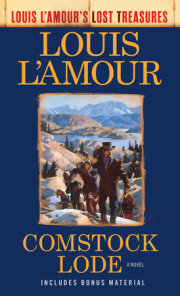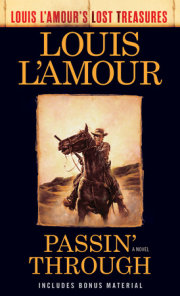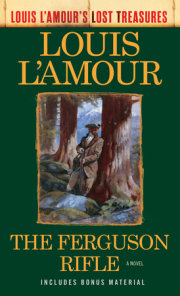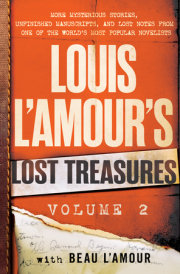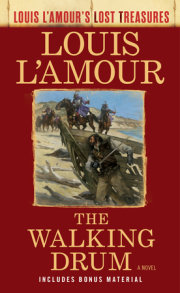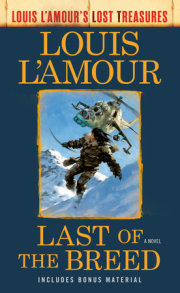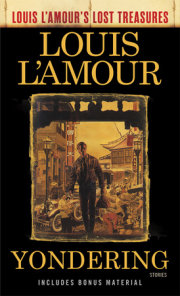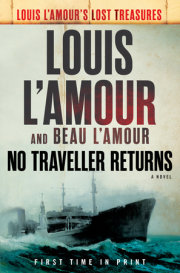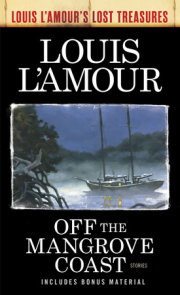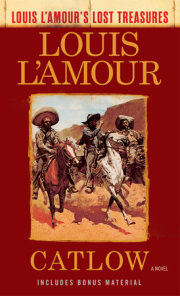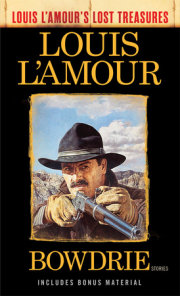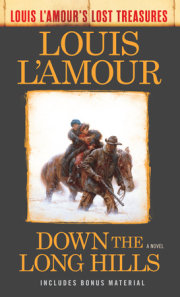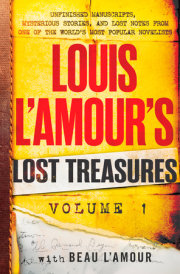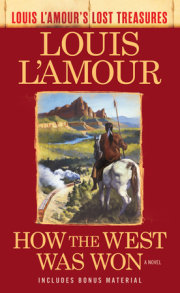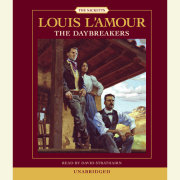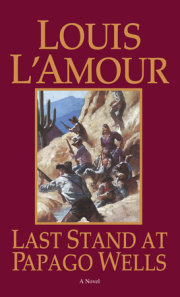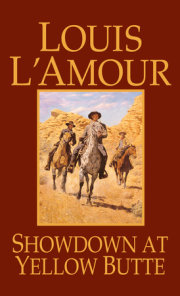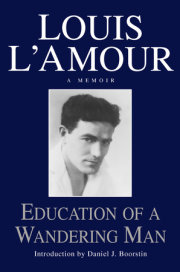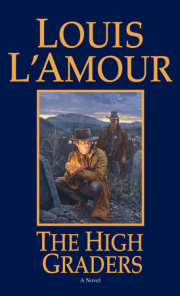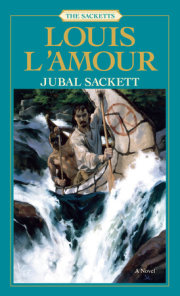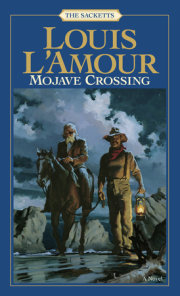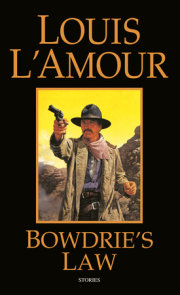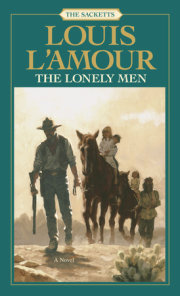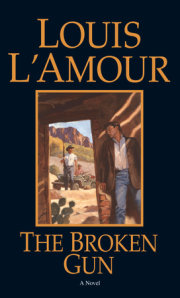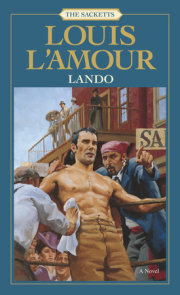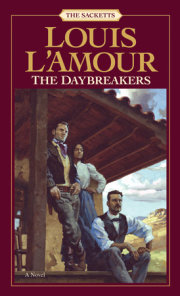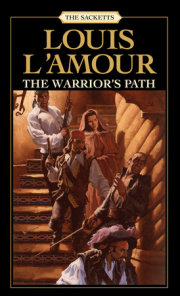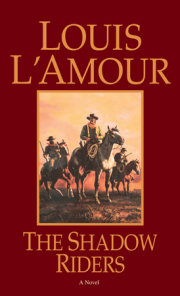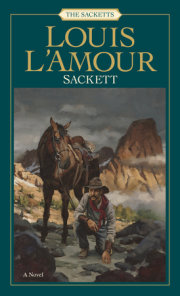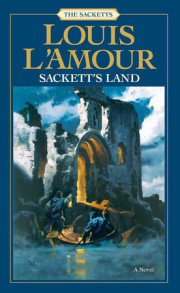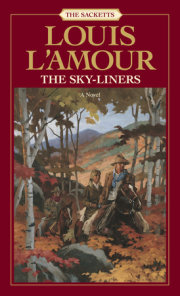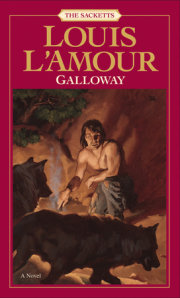Chapter 1
T
he Yuma Desert, east of the Colorado River mouth, was like the floor of a furnace; but of the four riders, three were Yaqui Indians and accustomed to the heat, as were the buzzards swinging in lazy circles above them. The fourth rider did not mind the heat. He was dead.
The part of the desert they were now crossing was hard sand. Before them and on their right were sand dunes. Four days earlier the dead man had ridden his horse to death in those dunes. Obsessed by the desire to escape, to reach the boat awaiting him on Adair Bay, he had not realized until too late how hard he had ridden the animal.
To attempt the escape across the desert, dotted here and there by low-growing creosote or burro bush, was madness if he traveled by day. Yet there was no time to stop. It was the Yaquis, hungry for the fifty dollars his carcass would bring, who arranged his schedule. It was run or die, and so he ran . . . and died anyway, for they caught up with him short of his goal.
Nobody escaped across the Yuma Desert. The Yaqui in the battered cavalry hat could have told him that, for he had collected bounty on seventeen bodies, and it made a nice living. The Yaquis knew nothing about the boat on Adair Bay, and cared less.
At Yuma Prison, Tom Badger did know about the boat. He had been the escaped prisoner’s only confidant, had known of the plans, and had known that the boat was to appear at a certain place on the shore each evening for two weeks. The men handling the boat were well paid, and they knew only that one man, perhaps two or more, would appear out of the desert. They were to pick those men up, ask no questions, and sail them to Mazatlan.
Tom Badger had intended to make the break with Isacher, but Isacher was alone when the chance came and he accepted the chance. Badger had been left behind, but he did not blame his cell mate. In his place he would have done the same thing. Now he waited. . . . Had Isacher made it?
Suddenly he heard the bell toll. One . . . two . . . three . . . four!
The prison gate had opened and closed. Badger sat up, scratching. Somebody had come in, and at this hour? It was not quite six in the morning.
Outside he heard a voice, some distance off and near the gate. It was plain enough, even at the distance, for in this clear air sounds carry. “They brought in another one.”
“Who is it?”
“Who d’you think? Only one man’s escaped from here in six months.”
Isacher!
Tom Badger held himself very still, his mind suddenly clear. Isacher was dead, and there were days to go before the boat would leave Adair Bay. Isacher had been clear about that, and had planned to arrive on the first of the fourteen days the boat would spend in the bay. Those other thirteen days were simply insurance against any delay or mistake in timing.
Whoever was in that boat could know nothing of Isacher’s failure. Therefore if one or more men should arrive at Adair Bay, the boat would pick them up and take them to Mazatlan. Isacher had failed, but his death left the door open.
Badger’s thoughts were interrupted by a jangle of keys and tramping feet. Doors opened and he heard the guards turning the convicts out for the day’s work.
Miller came in with the day man and began unlocking the leg-irons that chained them to the floor.
Gopher looked up, whining, “I just can’t make it today. I—”
“Shut up!” Tom Badger looked down irritably. Joe Harbin was all right, but Gopher could do nothing but whine.
“Get your boots on!” The jailer was impatient. He was a hard man who allowed no leeway for any of them. Miller, on the other hand, was a good guard and a fair one. If a con did not make it hard for Miller, he was inclined to give him any breaks the rules would allow.
“I can’t—”
The jailer nudged Gopher with a boot. “On your feet!”
“Please!”
The jailer raised the keys to strike, but Miller interposed. “Lay off him. He took ten lashes yesterday.”
“And now he’s askin’ for ten more.”
“Get your boots on, son,” Miller said. “Go let the Doc have a look at you.”
Slowly, painfully, Gopher pulled on his boots and got to his feet, lining up in the prison corridor with the others.
As they marched down the corridor he stared into the cells of the less troublesome prisoners. In each of them he saw men who were freshly shaved making up comfortable bunks. At least, they were comfortable compared to the hard stone floor on which he had slept in the maximum security cell. Halted briefly, the three saw Danny Rodelo. He was stripped to the waist while the doctor checked him over.
Miller watched for a moment. “Doc?”
“Just a minute, guard. I have to check this man for release. He’s going out today.”
“Lucky stiff,” somebody muttered, and Miller glanced around at the faces of the convicts, but there was no indication who had made the comment, and he did not press the question.
Rodelo was lucky to get out, any man was. In the case of Dan Rodelo, however, it had just been bad luck that ever got him in. He was, as all the prisoners knew, no criminal at all.
Rough, yes . . . and tough. He was a man who would make it the hard way if necessary, and anybody who bought a piece of his action bought trouble. Rodelo had done his time standing up. Never a complaint, never an argument. He did his work every day, and every day’s work was a good one.
“All right, Rodelo.”
Dr. Wilson took up his bag and stepped into the corridor. “What is it, Miller?”
“This man—he claims he’s sick.”
Dr. Wilson glanced at Gopher. “Oh, it’s you, is it?” Lifting the man’s shirt he looked at the scrawny back, laced with the marks of the lashes. “Healing all right.”
Dan Rodelo pulled on his shirt while the others watched. He tucked it under his belt and reached for a necktie.
Joe Harbin stared at him angrily, then started to speak, but Tom Badger nudged him sharply and Joe closed his mouth.
“You’re fit enough,” Wilson said to Gopher. “You’d better keep working or that back will stiffen up.”
“You mean I’ve got to work?”
“Everybody works in here, son. Stay out of trouble and one of these days you’ll walk out of here just like Rodelo is. If you make trouble you’ll just get one lashing after another, and when you get out you’ll be ready for the bone yard. Take it from me—I see them all.”
Dan Rodelo stood watching them go, then stepped out into the corridor and walked along to the warden’s office. He was aware of the stares of envy from those he left behind, but he knew few of them, and had little in common with any of them.
He stopped suddenly. Three Yaquis were bringing in a body. Despite himself, he stared at the dead face. He knew the man . . . knew him simply because there was only one man it could be. There was little about the cadaver he looked upon that resembled the man he had known by sight.
There had been rumors about Isacher. He had relatives back East who had money, and there was a story that some cash had been spread around. It was still a mystery as to how he had crashed out.
The prison clerk opened the door to the warden’s office. “Isacher’s body, sir, for your identification.”
“Can’t you identify him?”
“Regulations, sir. It is required that you see the body.”
The warden came to the door and looked down at the dead man. A slender, attractive man in his late fifties, his military bearing indicating his background, the warden had no liking for the task. “I’d never recognize him,” he commented. “He must have gone through hell.”
“Have you seen that desert to the south? I don’t think there’s anything like it anywhere else in North America. He was probably half dead from thirst when they shot him.”
The warden turned away. “They always do shoot them, don’t they?”
“A dead man can’t drink their water, sir, and down there water is almighty scarce.”
“All right, get him out of here. See that he’s properly buried.” As an afterthought, he added, “And be sure you can locate the grave. His family may want the body, although I doubt it.”
The Yaqui in the cavalry hat stepped forward. “Oro?”
“Pay him,” the warden said. “Here . . . I’ll sign that.”
He signed the voucher, then glanced up at the clerk. “I will sign,” he said, “but I will be damned if I approve. No matter what they were guilty of, it simply isn’t right to have them hunted down and killed.”
The clerk was cynical. “That’s how these Yaquis live, sir. I mean the outfit that hang around the fort.” He paused. “I’ve often thought we should recruit them, sir, train them into good soldiers. They have the makings.”
Copyright © 2018 by Louis L'Amour. All rights reserved. No part of this excerpt may be reproduced or reprinted without permission in writing from the publisher.








